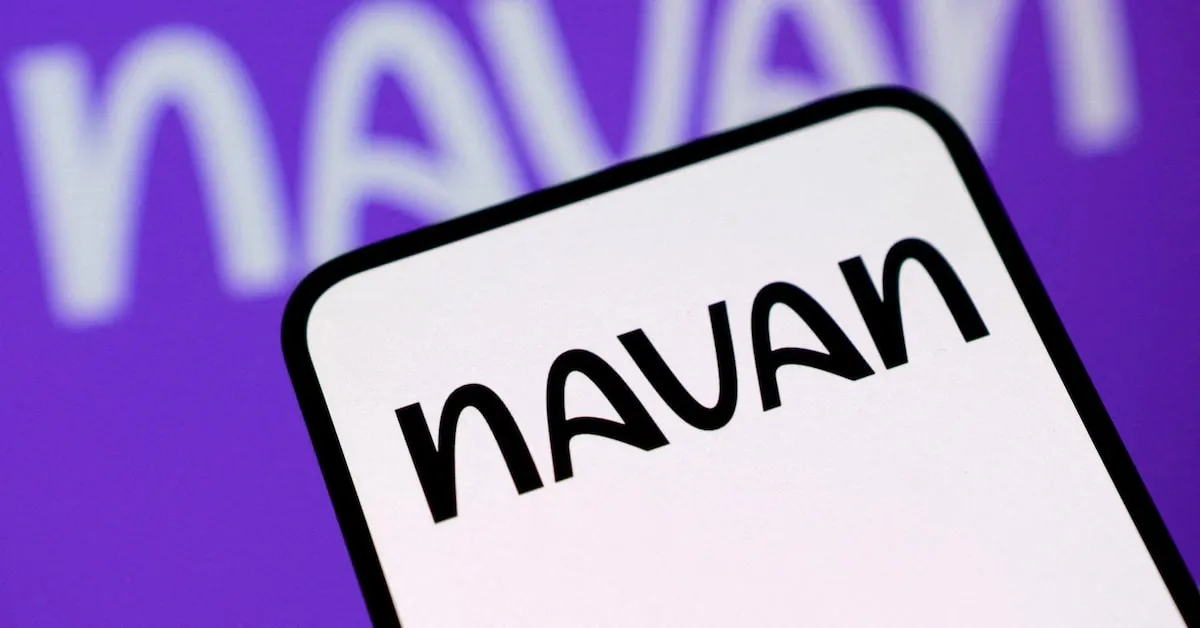Navan Earns Wave of Buy Ratings on AI Outlook After Post-IPO Slide
Navan Inc. secured a wave of long-awaited Wall Street support on Monday, with analysts arguing the corporate travel and expense-management platform is trading well below its true value after a steep selloff that followed its $923.1 million IPO last month.
A dozen research firms launched coverage, all with buy-equivalent ratings and an average 12-month price target of $25.33 a share. That implies roughly 69% upside from Friday’s closing price. A team of Citigroup Inc. analysts led by Steven Enders described Navan as both an “innovator and disruptor” in the business-travel arena, saying its cloud-native architecture and AI-first strategy give it a meaningful edge over legacy providers that rely heavily on manual services.
Investors, however, remain cautious. Navan’s shares climbed only 4.3% to $15.61 as of Monday afternoon still more than one-third below its IPO price. Even so, the broad analyst enthusiasm offers a potential turnaround moment for a company that has so far delivered the weakest US IPO performance this quarter among offerings raising more than $50 million, according to data. Returns across the IPO landscape have been muted, adding to broader market skepticism.
For Mizuho Securities analyst Siti Panigrahi, Navan stands out as a strong contender to reshape a corporate-travel sector that remains fragmented and technologically behind. With incumbents like Amex GBT, BCD Travel, and SAP Concur dominating the landscape, the firm believes Navan has the product depth and global reach to meaningfully expand its footprint.
Mizuho projects Navan will maintain more than 25% compound annual revenue growth through fiscal 2028, fueled by continued product extensions, rising customer adoption, and increased international scale.
According to Panigrahi, the opportunity is enormous: Navan’s usage-based revenue still represents under 1% of a potential $185 billion total addressable market, including roughly $86 billion tied directly to corporate travel.
Citigroup set a $26 price target, noting Navan’s platform is positioned to win share across both managed and unmanaged travel segments while expanding its capabilities in expense oversight and payment solutions. Oppenheimer and Mizuho echoed that view, assigning Outperform ratings with $25 targets.
A crucial part of Mizuho’s bullish thesis centers on Navan Cloud, the company’s proprietary global inventory aggregator. This platform offers real-time access to more than 600 airlines and 2 million lodging options, giving Navan a structural advantage that’s difficult for rivals to replicate.
The firm also highlighted Navan Cognition, the company’s AI-driven operating system, as key to future margin expansion. Built on Cognition, Navan’s AI assistant, Ava, now handles more than half of all call-center inquiries, which has helped improve gross margins by about 10 percentage points over the past two years.
Even though some investors are wary of near-term profitability constraints and the cyclical nature of corporate travel demand, Citigroup’s Enders said Navan remains “underappreciated” especially given the low valuation at which it currently trades. He added that Navan’s gross-adjusted revenue multiple sits in the bottom quartile of the broader software sector, despite the company’s stronger-than-average growth profile.
Oppenheimer analyst Jed Kelly said the sharp drop since the IPO creates an attractive setup for long-term investors. He expects Navan to deliver 303 basis points of gross-margin expansion by mid-2026, driven primarily by automation and AI-led workflow efficiencies.
Still, Navan’s aggressive growth strategy has a cost. The company remains unprofitable, posting a $99.9 million net loss for the six months ended July 31 widening from $92.5 million in the same period a year ago even as revenue climbed. Analysts acknowledged that elevated spending, particularly in sales and marketing, is weighing on margins in the near term. However, they argue that Navan’s AI tools can ultimately enhance profitability as adoption scales.
Citigroup analysts noted that Navan’s margin pressures especially sales and marketing expenses as a share of revenue are higher than those of many software peers. But Enders said that when viewed through the lens of customer productivity, profitability per client, and payback periods, the economics still support a bullish thesis. He emphasized that Navan’s ability to quickly recoup customer-acquisition costs reflects the underlying strength of its model, even as it invests heavily to accelerate growth.

Subscribe to our newsletter!
As a leading independent research provider, TradeAlgo keeps you connected from anywhere.








